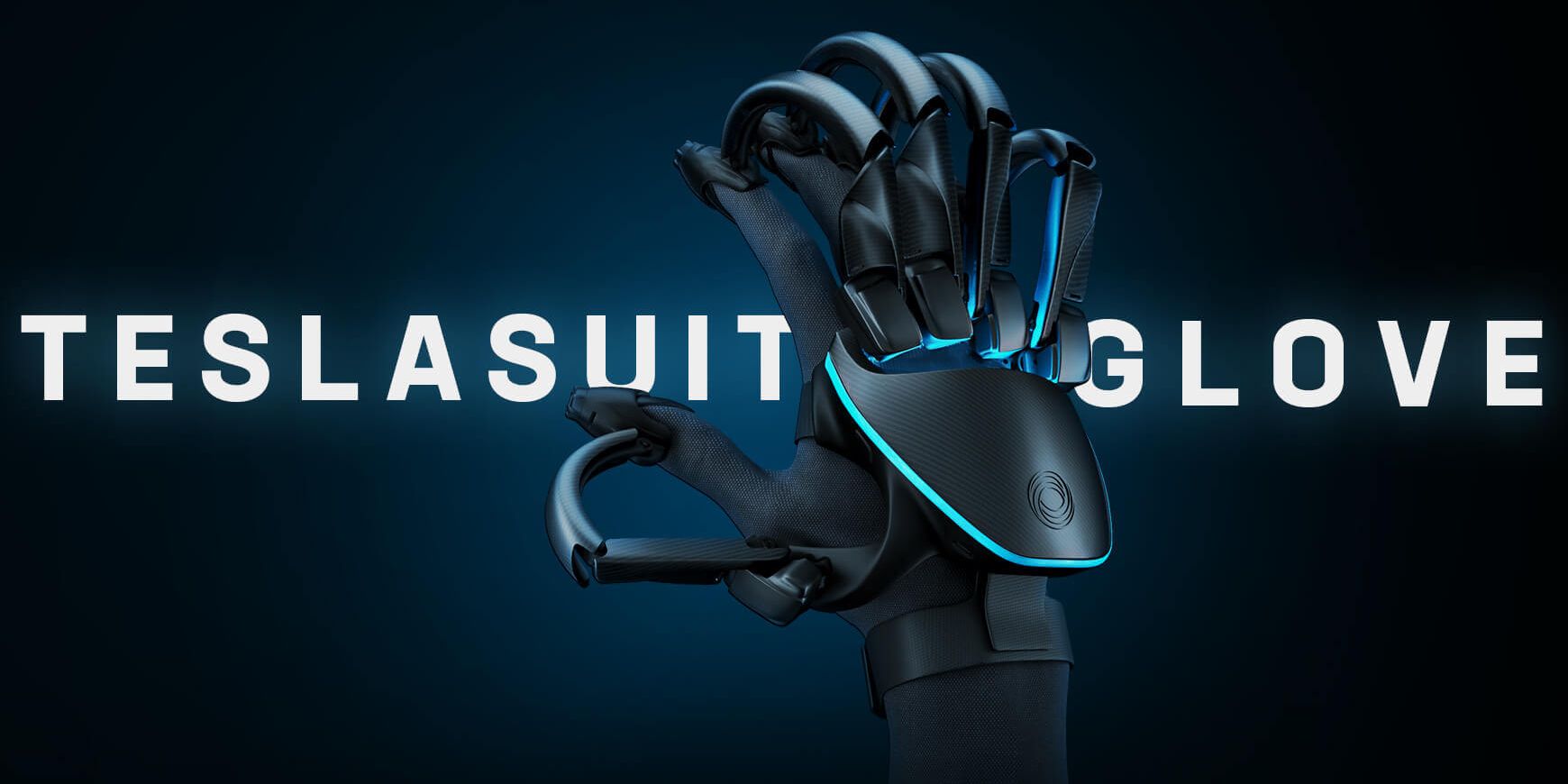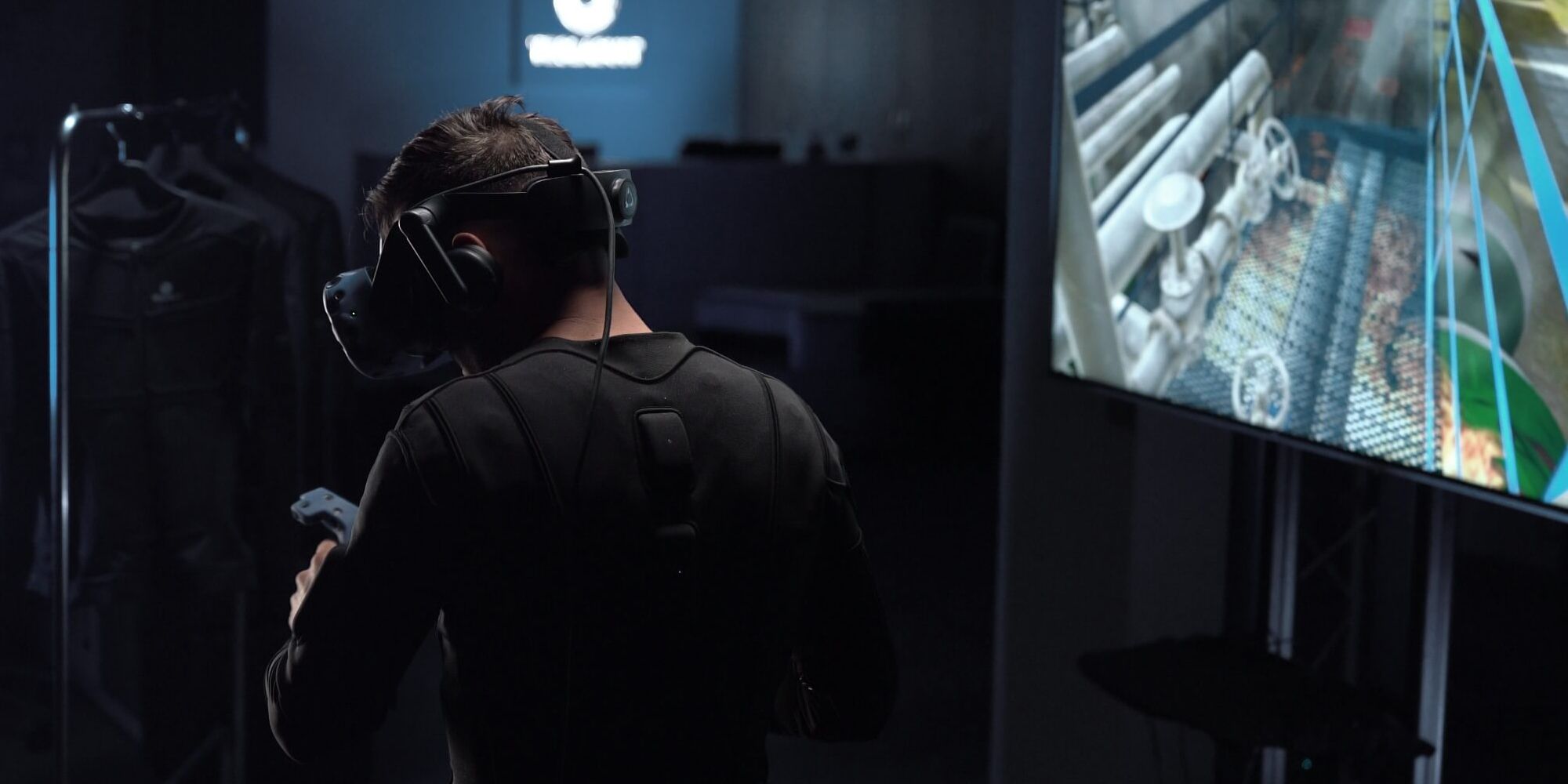A new VR peripheral called the Teslasuit Glove could make Virtual Reality more immersive than ever, with haptic displays and motion capture technology to simulate real touch feedback. VR gaming is perhaps more accessible than ever in 2019, as Facebook's self-contained Oculus Quest headset released this May.
Immersive virtual reality has been a dream for the gaming industry since it began. There were some early attempts to tap into VR's potential, such as Nintendo's Virtual Boy in 1995, but VR didn't hit the mainstream until 2016. That year, VR's biggest competitors all released headsets - the Oculus Rift, the HTC Vive, and the PlayStation VR - each of which providing differing levels of quality at various price points. Sony's headset was the cheapest of the bunch, which likely contributed to the 3 million PlayStation VR units sold by August 2018. While there was talk around the time of these devices' launch that virtual reality was the future of gaming, the VR industry has instead established itself as more of a niche market, perhaps due to its relatively high cost and lack of mainstream, "triple-A" content.
Room-scale VR programs like the HTC Vive and cordless setups like the Oculus Quest help more seamlessly immerse players in virtual environments, but most VR headsets still use some form of traditional controller. The new Teslasuit Glove could help change that, potentially allowing for controller-less control. Teslasuit, creator of the haptic feedback VR suit of the same name, announced the VR glove yesterday. The spider-like attachment on the back of the glove provides resistance and vibration effects and allows precise tracking of finger and wrist motion, and each fingertip is equipped with a haptic display Teslasuit said could allow the glove to simulate both touch effects and even textures. Teslasuit said all of this makes the glove perfect for remotely-controlling robotics or for medical rehabilitation.
While there are plenty of non-gaming applications for VR - such as aiding in the development of visual effects for films like The Lion King - it's interesting to note Teslasuit did not mention gaming in the announcement. Even if Teslasuit itself has no plans to take the glove into the gaming world, however, it's easy to imagine how a similar device could find a place in VR games, allowing players to feel like they're touching virtual objects and tracking hand movements. The recent announcement of Oculus Quest hand tracking hints at a similar future, but the feature is still in the experimental stage, and something like the Teslasuit Glove could provide more freedom to move users' hands away from the headset, plus more immersion via the haptic displays.
Despite VR's current position as a sort of high-cost sub-genre of gaming, there's still potential for the technology to become more mainstream. Valve recently announced Half-Life: Alyx, a VR game in the Half-Life universe. The implication, that the company believes so strongly in VR's potential it decided to make a VR-exclusive game in a series notoriously awaiting a sequel, is a promising one for VR in general, and the company's Index VR headset sold out after the game's announcement. Hopefully, Teslasuit will make their Virtual Reality gloves available to game developers as well.
The Teslasuit Glove is set to release in the second half of 2020.
Source: Teslasuit


